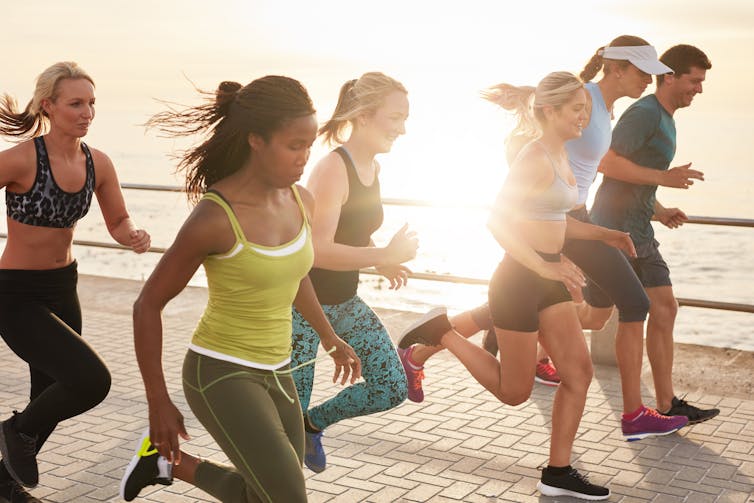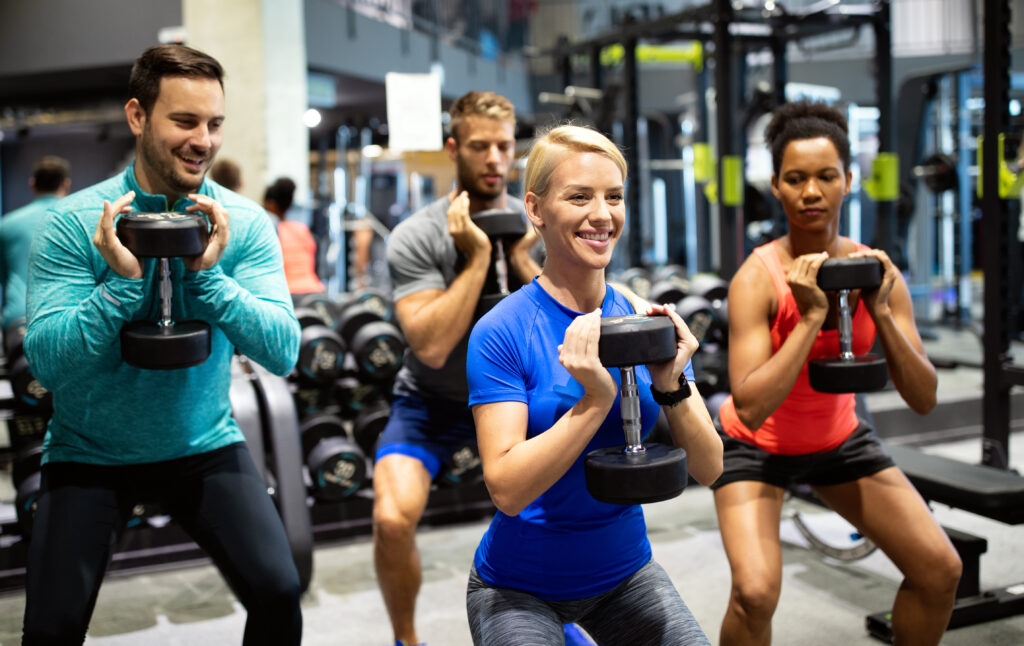Genetics have a significant influence on many aspects of our life – from our height and eye colour, our weight, and even whether we develop certain health conditions. And now, our recent review has shown that our genetics even influence whether or not we’re suited to a certain type of exercise.
To understand how our genetics impact the way we exercise, it’s important first to understand why we adapt to exercise in the first place. “Adaptation” refers to the body’s ability to make subtle improvements that help it better cope with a new exercise or challenge. One example of this would be increased muscle mass from exercise. These changes in our body help us to be better prepared to do this activity the next time we need to. While we all adapt to exercise, we improve and adapt differently and at different rates, even when we do the exact same exercise.
There are many reasons why this is the case. Various factors, such as diet, sleep, age and whether we leave time to recover between workouts, are all important in how we adapt to exercise. But recently, studies have also shown that the reason we all adapt differently to exercise is largely related to genetics. In fact, research has shown that there are hundreds or even thousands of genes which influence the way our body responds and adapts to exercise.
Take the ACE gene for example, of which there are two types: ACE I and ACE D. This gene has been shown to be linked to cardiorespiratory and aerobic fitness due to its role in helping deliver oxygen to our body’s tissues, as well as regulating blood pressure. It’s thought that if you have the ACE I gene, you’re better suited to endurance – whereas those with the ACE D gene are thought to be better suited to strength and power, as they aren’t as good at regulating blood pressure and oxygen.
Adaptation of Genes to Exercise
To better understand how our genes are related to different types of exercise – and whether they affect the way we adapt to exercise – we conducted a systematic review and meta-analysis. This allowed us to assess all the current evidence which has linked certain genes to different key measures of fitness – including cardiorespiratory fitness, muscular strength and explosive power (how quickly we can go from a standstill to a sprint, for example) – in the average person. We looked at a total of 24 studies which included 3,012 participants altogether.

Based on our analysis, we found that, on average, people saw significant improvements to their fitness when they exercised three times a week for 12 weeks – regardless of their genetics. This is great news, as it shows us that everyone can improve their fitness through exercise regardless of their genetics.
But, we also saw that these fitness improvements weren’t always equal. In fact, there were sometimes large differences between people – even those that did the exact same type of exercise for the same amount of time. In some cases, this difference was greater than 10%. For example, we found that for cardiorespiratory fitness, muscular strength, and power, there were on average around 4%, 10% and 4% differences in improvements respectively.
Even after taking into account sex, age, diet and other factors which can affect how we adapt to exercise, our analysis found 13 genes that were directly responsible for influencing these differences. For aerobic training, genes explained 44% of the differences in scores that we saw. For strength training, genes explained around 72%. But for power, genes only explained around 10% of the difference. The rest of these differences can be explained by other variables – such as diet, sleep, recovery time and lifestyle. This shows us what a big impact our genes have on what fitness adaptations we see when we exercise.
This all isn’t to say that people with certain genes should give up or pursue different types of exercise. Rather, this simply means that people with certain genes may need to work a little bit harder than others to see similar adaptations. While this is unlikely to have a big impact for the average person, a professional athlete may want to know which genes they have so they can better understand where small improvements can be made that will boost their performance.
Henry Chung, Postgraduate Researcher, Exercise Genetics, Anglia Ruskin University and Dan Gordon, Associate Professor: Cardiorespiratory Exercise Physiology, Anglia Ruskin University
This article is republished from The Conversation under a Creative Commons license. Read the original article.

